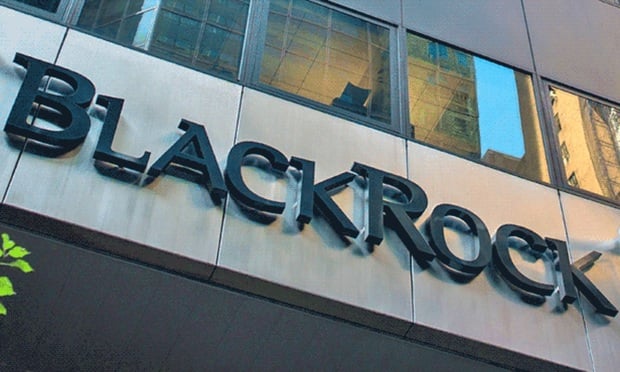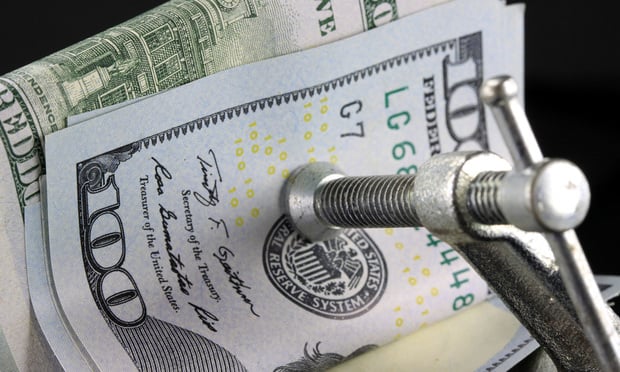In a wide-ranging discussion during Commonwealth FinancialNetwork’s annual conference on Nov. 4, the independentbroker-dealer’s chief investment officer, Brad McMillan, addressedthe major issues on every advisor’s minds, but added his own twistto the received wisdom on the Federal Reserve and the presidential election.
|Related: Advice for next president -- expand SocialSecurity
|When asked in an interview whether the Fed will raise rates atits Dec. 15-16 FOMC meeting, McMillan answered that “it isn’t aquestion of raising rates, it’s a question ofnormalizing rates.”
|The Fed, he said, has “backed itself into a corner,” and nowmust “hustle to catch up” with an improving economy by institutinga 25 basis point increase in December.
|It’s arguable, he suggested, that the Fed has “waited too long”to raise rates, though he also suggested that having the Fedgovernors take their own policy-making Hippocratic oath—“first, dono harm”—would be appropriate.
|Related: What benefits do Trump and Clintonoffer?
|The Fed’s nonaction, in which “we’ve seen the Fed shoot therecovery in its foot,” can be replaced now by a confidence-buildingraising based on wage growth, a labor shortage and an employmentboom, all of which may well “kick off top-line growth” in theeconomy.
|That scenario—the transition from a policy-driven to afundamentals-driven economy—is one of the three major transitionsMcMillan sees playing out in the near future for U.S. markets andthe economy.
|He also sees the major issues in the presidential electioncampaign as being “symptomatic” in part of another majortransition: from “global to local.”
|That transition is reflected in both major-party candidatesspeaking against any expansion of free-trade agreements, and in theanti-immigration policies of Donald Trump, which are similar tothose of other politicians and popular movements around thedeveloped world.
||While what will develop policy-wise in the next adminstrationwill not be “yesterday's protectionism,” globalization, heconcluded, will be “less of a contributor to growth goingforward.”
|That’s why McMillan believes that the Nov. 8 election will bethe “start of the show, not the end” of these issues that havecaused so much sturm und drang in the 2016 campaign, andthat the splits seen in both major parties are symptomatic of “the99%” being unhappy with their lot in life.
|While Trump’s utterances may be “outside” the policies expressedby both Democrats and Republicans over the past 50 years, theyreflect strong feelings among the American public, so Trump is moreof a “feature, not a bug.”
|As for a President Hillary Clinton, McMillan said she will have“Bernie Sanders and Elizabeth Warren pushing her,” which is likelyto result in “more dysfunction” in Washington.
|A Trump victory would likely result in a market correction, hesaid, but if either candidate wins, we can expect increasedgovernment spending, which would also likely increase consumerspending.
|Over the next 12 months, we thus could see “much better growth”in GDP, helped along by the third major transition, of “capital tolabor.”
|Over the past 30 years, McMillan says we’ve seen the financialsector grow and capital markets come to dominate the U.S. economy,while wages fell (partly due to an abundance of labor) andcorporate profits rose. As seen in the most recent wage report,however, wages are increasing and there is a “relative scarcity oflabor,” leading major employers like WalMart and others to raiseemployee wages.
|As a result of the last 30 years, labor now “has a chip on itsshoulder, and rightly so,” which both Bernie Sanders and Trump usedto their advantage, McMillan said.
Complete your profile to continue reading and get FREE access to BenefitsPRO, part of your ALM digital membership.
Your access to unlimited BenefitsPRO content isn’t changing.
Once you are an ALM digital member, you’ll receive:
- Critical BenefitsPRO information including cutting edge post-reform success strategies, access to educational webcasts and videos, resources from industry leaders, and informative Newsletters.
- Exclusive discounts on ALM, BenefitsPRO magazine and BenefitsPRO.com events
- Access to other award-winning ALM websites including ThinkAdvisor.com and Law.com
Already have an account? Sign In
© 2024 ALM Global, LLC, All Rights Reserved. Request academic re-use from www.copyright.com. All other uses, submit a request to [email protected]. For more information visit Asset & Logo Licensing.








